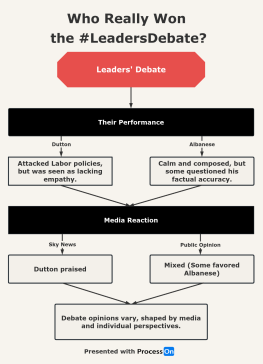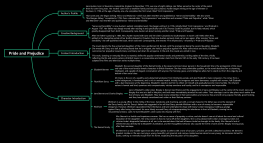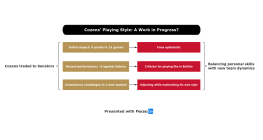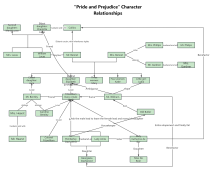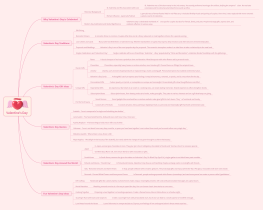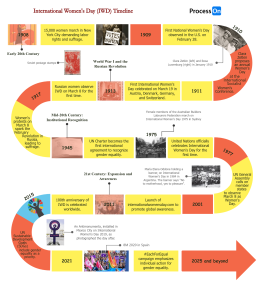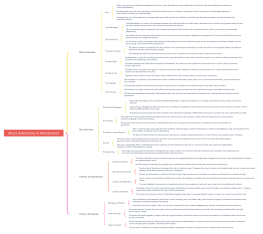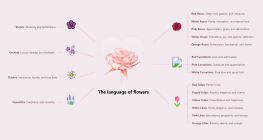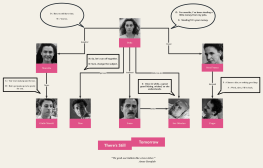Introduction to the novel 'Pride and Prejudice'
2024-09-26 10:58:21 0 Report
Login to view full content
Other creations by the author
Outline/Content
Information Brief
Author: Jane Austen
British female novelist
Masterpieces: "Sense and Sensibility", "Pride and Prejudice", "Emma"
Works
Foreign title: Pride and Prejudice
Alias: First Impression
Genre: Novel
Main content
The novel depicts the five marriageable daughters of the minor gentleman Mr. Bennet, with the protagonist being the second daughter, Elizabeth. She meets Mr. Darcy at a ball but, having heard of his arrogance, initially holds a prejudice against him. After a series of complications, Elizabeth overcomes her bias towards Darcy, and he, in turn,put down his pride. In the end, the two lovers are united in marriage.
Main characters
Elizabeth
The second daughter of the Bennet family, the protagonist of the novel.
The wisest and most clever person in the family, lovable, intelligent, honest, and elegant.
Sharp language and premature judgments about others also led to her confusion.
Darcy
The son of a wealthy, affluent landowner from the Pembrey manor.
Born of noble birth, yet overly proud and excessively valuing one's own social status.
Elizabeth's refusal made him realize that his arrogance turned into humility.
Jane and Bingley
Jane is Elizabeth's sister, and Bingley is Darcy's best friend.
The two fell in love at first sight, with many similarities in their personalities and natural dispositions.
After some setbacks, the two finally became a couple.
The Bennet family
Mrs. Bennet
A foolish and rash woman, devoid of manners and virtue.
Does not care about the moral and ideological and cultural education of their daughters, just wants to marry all their daughters off.
Mrs. Bennet's lack of refinement and unfiltered behavior led to Jane and Bingley moving away after their marriage.
Mr. Bennet
A wise middle-aged man often speaks in a sarcastic, cynical, yet indifferent tone.
His greatest mistake was marrying a wife who was only beautiful but devoid of insight and narrow-minded.
Immersed in books, I wanted to mentally leave this home, thus neglecting the education of my daughters.
The theme of the work
This work, drawing on everyday life as its material, defies the popular sentimental novels and pretentious writing styles of the time, vividly reflecting the life and social customs of British towns in a state of conservatism and seclusion from the late 18th to the early 19th century.
In this novel, Austin reflects her own views on marriage through the different approaches of the five Bennet daughters towards their lifelong big deal. She opposes both marriages for money and treating marriage as a trivial matter. She emphasizes the importance of an ideal marriage and considers the mutual feelings of both parties as the cornerstone for forming such a marriage.
Elizabeth's differing attitudes towards Darcy's two marriage proposals actually reflect women's pursuit of personal independence and equal rights. Elizabeth is intelligent, witty, brave, visionary, and has a strong sense of self-respect, and is adept at thinking things through. It is precisely these qualities that enable her to have independent opinions on matters of the heart, and which prompt her to form a happy family with Darcy.
Artistic Features
Irony
Situational irony extends irony from the linguistic level to a specific plot or scene in a novel, mainly referring to the development of the story in the novel being unexpected to the readers or even completely opposite to what they anticipated, yet still within reason.
Austin has dramatized the novel scenarios of "Pride and Prejudice," achieving a strong effect of irony.
Language
Overall, the protagonists in "Pride and Prejudice" are mainly from the nobility and middle class, who tend to have a relatively high level of education. For them, family socializing is an essential part of their growth process. Consequently, their speech differs significantly from that of the common class, as reflected in their use of complete language forms.
Concise and accurate wording
The choice of words in different languages can accurately reflect a person's level of education and family upbringing.
Diversity in sentence style
It can highlight the characters in "Pride and Prejudice" from a dimensional perspective, making the character imagery more three-dimensional and full-bodied, aligning with the aesthetic needs of readers' reading.

0 Comments
Next page
Recommended for you
More




